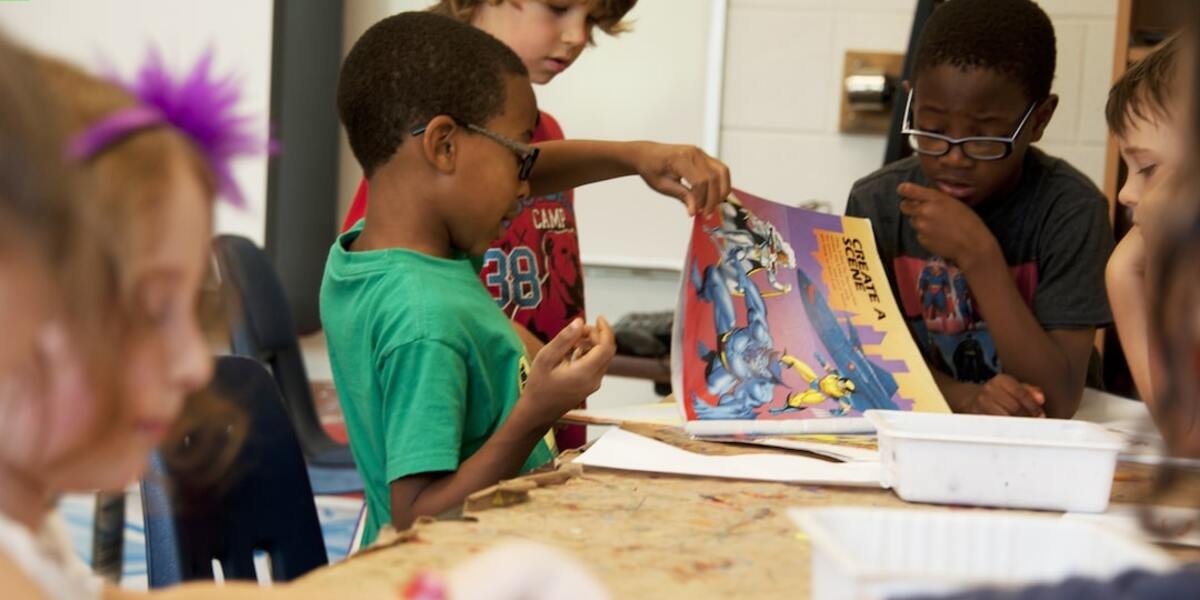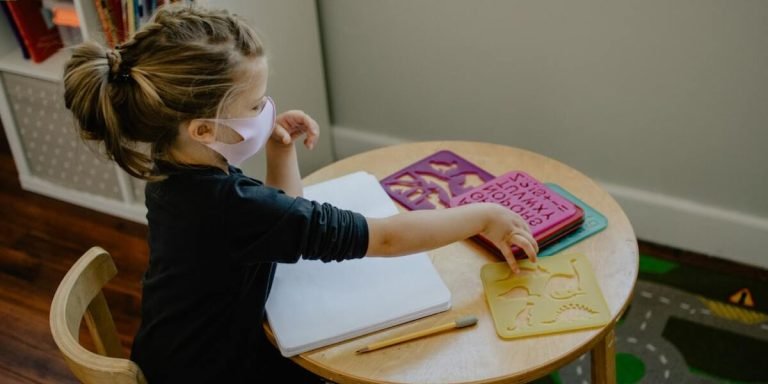BA in Elementary Education: Shaping the Future of Young Minds
A BA in Elementary Education is an academic pathway that equips individuals with the requisite skills and knowledge needed to shape young minds effectively. This degree focuses on creating a sturdy learning foundation for children, thus playing a crucial role in shaping their future.
The importance of early education cannot be overstated as it sets precedence for subsequent educational stages. Therefore, those pursuing a Ba in elementary education are given comprehensive training to holistically cater to this needful area of childhood development and equip them with methods that facilitate effective teaching-learning processes.
Did you know?
A surprising fact is that a Bachelor of Arts in Elementary Education not only trains future educators, but it also ranks as one of the top degrees leading to job satisfaction according to a survey by PayScale- with a majority reporting high levels of fulfillment.
Understanding the Core Curriculum of a BA in Elementary Education
Understanding the core curriculum of a BA in Elementary Education necessitates comprehending how technology integration is transforming elementary school learning. In 2023, this degree isn’t just about teaching math or literacy anymore; it’s more about preparing educators to equip young minds for an increasingly digital world.
The coursework for the modern-day Bachelor’s in Elementary Education integrates technology at its heart. Aspiring educators are taught innovative methods on how to incorporate interactive tools and virtual platforms into lessons that can transform traditional classroom environments. They learn valuable techniques such as creating digitally enriched lesson plans, using game-based learning apps and facilitating online collaboration among students – all imperative skills given our tech-saturated era.
Students pursuing a BA in Elementary Education also explore ways to address diverse student needs through adaptive technology resources. This includes strategies like differentiated instruction via personalized e-learning modules which can help tailor fit education according to individual student abilities and inclinations – thereby enhancing overall engagement and comprehension levels within their future classrooms.
The Interdisciplinary Approach: Integrating Multiple Subjects
In a BA in Elementary Education program, there is considerable emphasis on an interdisciplinary approach that combines several subjects to create comprehensive learning experiences. This concept underlines the integration of multiple areas of study and allows for more robust connections between various topics.
By embracing this methodology, students are introduced not just to isolated facts but also how these elements interact within larger systems. In essence, they learn about the interconnectedness of knowledge which transcends traditional subject boundaries – be it science or literature.
This integrative method further makes room for technology’s role- Enter ‘Technology Integration’, one of 2023’s most catalytic educational trends impacting every domain from mathematics to art classes.
For instance, children might use coding programs to understand math equations better or utilize multimedia presentations when reporting about historical events – thereby integrating tech education seamlessly into existing structures without any significant overhaul required.
Such practices enable learners at even primary stages to develop valuable life skills like critical thinking and problem-solving alongside academic growth providing real-time application-based comprehension rather than merely theoretical insights!
Moreover,it fosters technological proficiency amongst youngsters from early years itself making them future-ready whilst still maintaining focus on foundational expertise fostered through a conventional BA in Elementary Education degree course content.
Implementing Educational Psychology in Early Learning
Approaching the core curriculum of a BA in Elementary Education, there’s an integral component that stands out – Educational Psychology. This discipline is paramount when it comes to implementing effective teaching strategies for early learning.
Over past years, educational psychology has been shown to play vital role in shaping young minds. The reason? It centers around understanding how children learn and providing them with optimal conditions for knowledge absorption.
The first step towards integrating this concept into elementary school learning lies in acknowledging different learning styles. Children are unique individuals; some may be visual learners while others thrive by listening or doing. Having achieved a ba in elementary education equips you with knowledge on diverse instruction techniques tailored specifically for these various types of learners.
Moreover, technology integration within classrooms plays its own crucial part here as well! In 2023 we understand more than ever before how digital tools can foster engagement and facilitate comprehension among students at their tender age.
Imagine utilizing interactive modules on tablets allowing each child to explore lessons at his or her pace – now that’s personalized learning!
Furthermore, innovative tech solutions designed based upon findings from educational psychology research help educators track student progress rather precisely, aiding detection of any potential difficulties earlier ensuring timely intervention if needed during this formative phase called elementary schooling.
Innovative Teaching Methods Acquired Through an Elementary Education Degree
Through a Bachelor’s Degree in Elementary Education, future educators learn how to effectively employ innovative teaching methods. Technology integration serves as one of the pivotal aspects that melds with traditional pedagogic approaches in this course. As we embark on 2023, these techniques are gaining more acceptance and importance due to their potential role in shaping a child’s learning process.
The elementary education degree equips teachers not only with knowledge about diverse subjects but also enables them to understand the students’ unique needs at different developmental stages. Employing modern technology tools like educational apps or interactive whiteboards can create an engaging environment for young learners. This helps ensure that children gain concepts while having fun rather than perceiving lessons merely as classroom chores.
Moreover, embracing such contemporary methodologies fosters critical thinking skills among kids early on during their school life journey.The benefits don’t stop there – it promotes collaborative efforts amongst peers too! Children who participate actively using tech-enabled group tasks typically develop excellent communication competencies alongside academic proficiency.
This is why nurturing digital literacy from an early age through smart classrooms or online platforms has become integral today. The BA program recognizes this trend and prepares upcoming educators adequately for the dynamic landscape of elementary schooling amended by advancements in technology resources used globally across top-notch schools today.
Embracing Technology: Tools for Modern Classrooms
In this digital age, pursuing a BA in elementary education equips future educators with the necessary tools to effectively integrate technology into their classrooms. Innovation isn’t just emerging; it is transforming how we approach learning from its core.
One primary area of focus has been implementing ‘smart’ boards into classroom settings. These interactive whiteboards have revolutionized teaching techniques by enabling real-time engagement and fostering improved comprehension amongst students. This tool’s capacity for engaging multimedia presentations helps simplify complex ideas and appeals to various learning styles present within an average classroom.
Secondly, contemporary methods involve utilizing online resources as part of curriculum planning. Numerous educational platforms house countless cognitive-enhancing games and activities tailored towards promoting problem-solving skills among young learners.
Another significant innovation includes tablets or iPads introduced as crucial pedagogical assets aimed at enhancing student interaction while also providing immediate access to reference material aiding them in research work readily available at the touchpoint.
Educators today are using video conferencing apps like Zoom or Microsoft Teams not only for lectures during remote classes but also encourage collaboration through group projects involving peers spread across different geographical locations representing diverse cultures contributing wider perspectives on assigned topics which otherwise would’ve limited scope inside physical class boundaries.
Differentiated Instruction Strategies for Diverse Learners
Differentiated Instruction Strategies refer to a variety of teaching methods adjusted to meet the varying needs, skills, and interests of learners. These techniques take into account student’s diversity while ensuring equitable access to content knowledge.
One such strategy involves Technology Integration which has become even more crucial as we move forward into 2023 where technological savviness is not just preferred but demanded from teachers by both students and parents alike.
Technology integration could be seen through using interactive whiteboards or smart boards during lectures. This tech tool allows educators to create engaging presentations that can include videos, graphics, text along with pacing individualized for different learning styles thus making concepts easier and enjoyable for young minds.
Another key technique includes incorporating adaptive leaning applications or systems like Khan Academy that offer personalized lesson plans based on each student’s progress indicating how they learn best.
Also consider integrating virtual reality (VR) technology which presents opportunities beyond mere imagination allowing children physical interaction within their digital environment fostering hands-on learning experience whilst having fun!
Lastly employing social media platforms like Edmodo provides secure classroom communities where you can share resources/assignments encouraging collaboration among peers hence promoting hitherto unexplored avenues of group study ideas.
Practical Experience and Classroom Management Training
Practical experience and classroom management training carry immense significance in the journey of a Bachelor’s in Elementary Education. The field continues to evolve radically, with technology start playing an increasingly integral role in shaping the educational landscape. As we move into 2023, it becomes critical for future educators pursuing BA in elementary education to gain substantial practical exposure alongside their theoretical lessons.
Being tech-savvy is no longer an option but indeed a necessity for these aspiring teachers. They need not only understand how they can efficiently integrate technology into lesson plans but also know which digital tools would contribute best towards fostering meaningful learning experiences among young learners.
Classroom management training really comes down to implementing strategies that foster a positive and conducive environment where all students feel comfortable exploring new ideas through technological channels. It’s about nurturing independent thought by leveraging innovative teaching aids like interactive whiteboards, e-books or even coding games specifically made for children at this stage of life.
Technological integration calls for teacher-student interactions beyond traditional boundaries, making classroom control more complex yet rewarding if managed proficiently. Therefore practical hands-on sessions during course years become instrumental as they equip trainee teachers with necessary skills; enabling them stay one step ahead amidst rapid advancements while still keeping focus on core function – facilitating superior elementary school learning.
Student-Teaching Practicums: Hands-On Skill Development
In the quest for a BA in Elementary Education, student-teaching practicum is an integral part. Here’s why.
This module provides students with critical hands-on experience in managing real classrooms under supervision – the ultimate platform to translate theory into practice. As an aspiring elementary school educator, one of the key skills you’ll gain from this training lies within technology integration in education – a must-have skill set for contemporary educators.
Learning how to effectively incorporate technology tools and digital resources into your teaching practice can significantly enhance child engagement levels and improve learning outcomes. Whether it’s using smart boards for interactive lessons or leveraging educational apps that reinforce classroom teachings at home, these experiences are invaluable when striving to connect with digitally native young minds.
These practical sessions also provide an opportunity for pre-service teachers to understand children better by observing their responses towards various teaching mediums. Over time, they develop personalized strategies tailored toward individual learner needs which further boosts effective lesson delivery.
Classroom management is another skill perfected during these interactions – especially important as discipline plays a pivotal role both within physical classrooms and virtual ones (should remote schooling need be implemented). From maintaining decorum amidst youthful exuberance to efficiently organizing e-learning schedules – future educators learn quickly on their feet!
Effective Techniques in Managing Young Learners’ Classroom Dynamics
Understanding and managing classroom dynamics is a key part of an educator’s journey when pursuing a BA in elementary education. In today’s fast-paced 2023, technology integration has become integral to the educational landscape including in primary school learning environments. Let us explore some effective techniques for managing young learners’ classroom dynamics within this context.
Firstly, promote collaborative digital activities. Incorporating tools like Google Classroom promotes group-oriented tasks where children can work on shared documents or presentations together. This fosters unity and ensures active participation from all students while enabling educators to monitor individual contributions effectively.
Secondly, use digital behavior management systems such as ClassDojo that allows teachers not only track student behaviors but also share these updates with parents real-time thereby establishing transparent communication channels between home and school regarding child progress.
Thirdly, employ adaptive online learning platforms designed specifically for young minds like DreamBox Learning Math or Lexia Core5 Reading. These adapt content based on each student’s level and pace of understanding promoting personalized learning experiences which helps sustain interest levels while ensuring knowledge absorption happens at optimal speeds.
Conclusion
In essence, obtaining a BA in Elementary Education is more than acquiring a degree – it’s about crafting the promising future of young minds. It empowers individuals to shape children’s lives through knowledge and inspiration, playing their part in building an enlightened society.
So let your journey begin here! We invite you to explore our website for additional resources on childhood education. Whether you are an educator or parent seeking guidance and support, we offer expansive content designed specifically with your needs mind.
After all, educating our youngsters effectively today paves the way for a brighter tomorrow.







